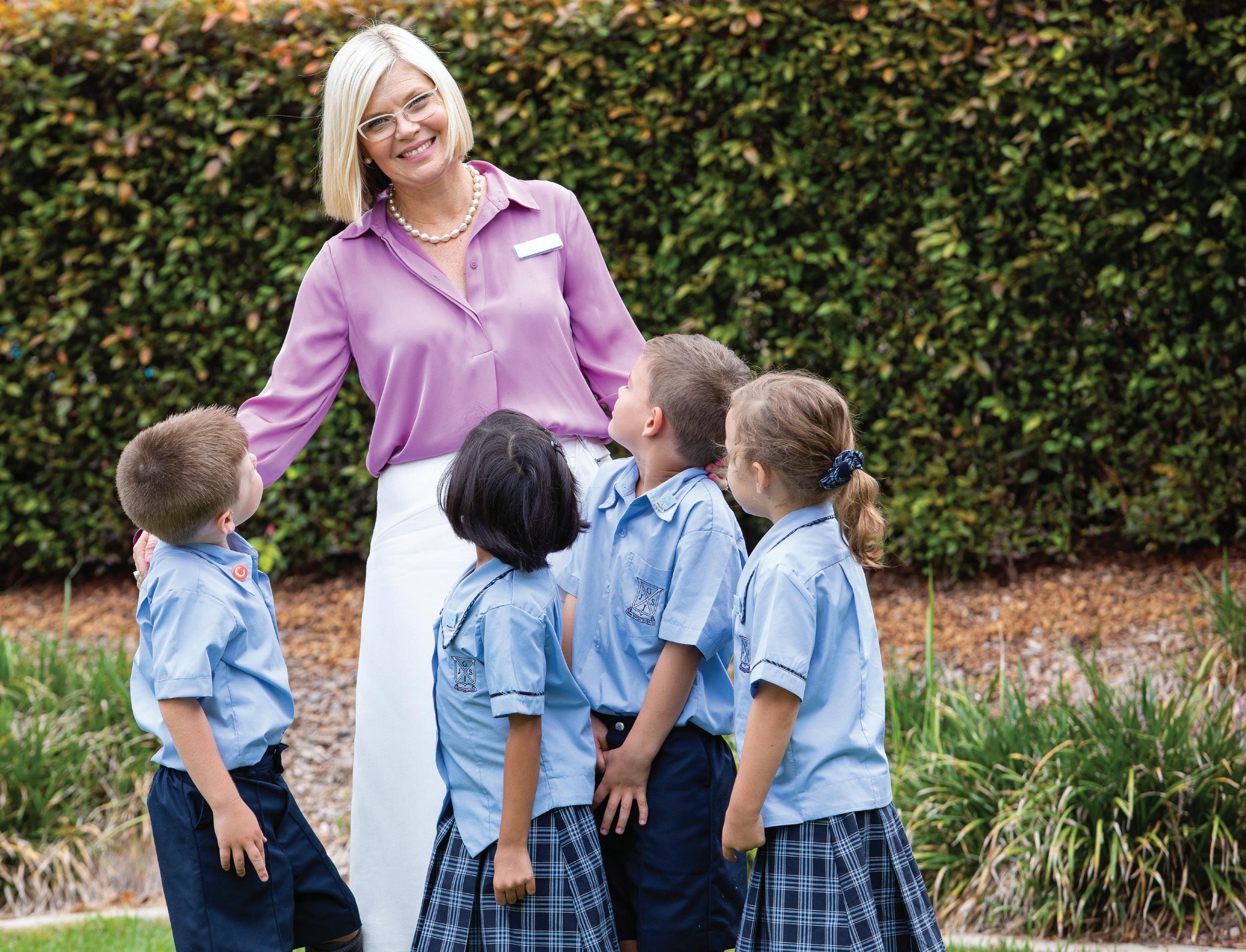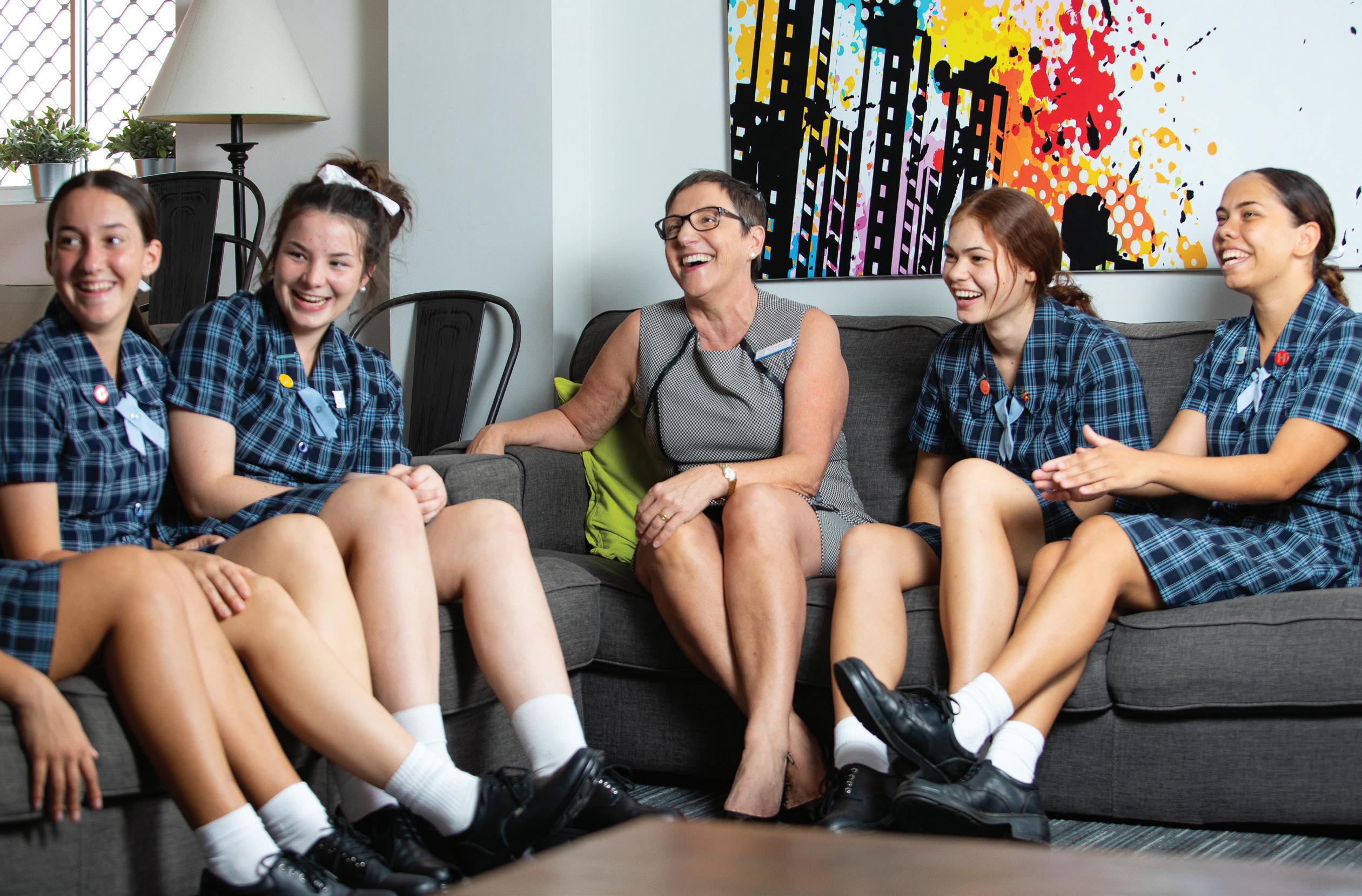
5 minute read
FROM OUR HEAD OF JUNIOR SCHOOL

Advertisement
Overcoming Challenges
The landscape of education, like much of the world, has been transformed throughout 2020.
The emergence of COVID-19 as an international concern has certainly changed nearly every aspect of our lives, from how we conduct our work or learning, how we maintain our households, and indeed how we remain socially connected to family and friends. I have been immensely grateful and proud of the commitment of the Junior Grammar staff in accommodating this period of rapid and extraordinary change regarding how they deliver teaching and learning programs, engage with children and their families learning remotely and face-to-face, and what it now ‘looks like, sounds like, and feels like…’ to be an educator, and indeed a school.
The global pandemic of COVID-19 has presented a vast array of challenges for the world. The pandemic has also presented challenges at a local and on a personal level. It is interesting to note the words of President John F. Kennedy, in a speech presented in April 1959 in Indianapolis, “The Chinese use two brush strokes to write the word “crisis”. One brush stroke stands for danger; the other for opportunity. In a crisis, be aware of the danger, but recognise the opportunity.”
While Chinese linguistic expert, Professor of Chinese Language and Literature at the University of Pennsylvania Victor H. Mair, has since labelled this as an error of interpretation, it does perhaps indicate a fundamental human tendency to find the positive in a difficult situation. When written, the Chinese word for crisis is composed of two characters, one of these characters represents “danger” while the other character represents the meaning of “pivot” or “crucial point”. As an educator, I prefer to view this crisis as a pivotal moment to reflect on what education could be in the future. This to me is the ‘silver lining’ of a problem or in this case a crisis.
I have been immensely grateful and proud of the commitment of the Junior Grammar staff in responding to the transformation of the educational landscape throughout 2020. Our staff accommodated this period of rapid and extraordinary change in how they delivered teaching and learning programs, how they engaged with children and their families learning remotely and face-to-face, and what it ‘looked like, sounded like, and felt like…’ to be an educator.
Additionally, I am in awe of how our parent community responded with both positivity and optimism in focusing on supporting their children through this period of uncertainty. As a teaching staff we understand the
significant pressures placed on all families - whether they were engaging in Remote Learning or having their children attend school whilst engaging in essential work. We understand the nature of relationships in the home could be challenged and transformed from that of parent to child, to, in many cases, that of teacher to child - and for families this was an additional complexity to the period of uncertainty.
The children of our school demonstrated extraordinary resilience, patience and significant grit whilst adapting to changed learning expectations, new learning platforms, and new social interaction guidelines. All children, from Kindergarten to Year 6, adjusted with an ease far beyond their years. The children of Junior Grammar developed mature and thoughtful solutions to arising problems and challenges, and our staff felt privileged to work with these children - whether that be via our Remote Learning Program, or face to face at school.
Maintaining our connections and a sense of connectedness and belonging was critical during this period of change and for many, a period of isolation. To support this connection, our staff liaised regularly with families using a variety of communication platforms to ‘check in’ on how remote and face-to-face learning was progressing. We were mindful that individuals respond to change in various ways, and the School aimed to provide support for families navigating this change. The first week of COVID-19 lockdown, and remote learning, provided interesting and thought-provoking statistics, illustrative of the changed

• More than 30,000 emails were sent from Kindergarten to Year 6 - teacher to student, student to teacher, parent to teacher, and teacher to parent. • There were more than 3,600 student ‘learning’ posts on the
Seesaw App which was used as our dominant digital learning platform. • 2,100 teacher comments were uploaded to Seesaw. • Teachers completed more than 2,400 ‘likes’ or acknowledgements of student work on the Seesaw. • Every Junior School student has been active on Wushka, our online
Guided Reading platform. • Students have completed more than 450 lessons across Math Seeds and
Reading Eggs. • 677 learning tasks have been set by teachers and completed by Years 4, 5 and 6 students on Maths Online.
landscape of the learning environment and how we stayed connected.
In moving forward for the remainder of 2020 we are focused on continuing to be creative and innovative with how we deliver learning and how our children construct and participate in their learning moving forward.
While we will formally evaluate the lessons we have learned when all of the students are able to be welcomed back to school, we have affirmed some strongly held beliefs about how children learn best, and how we can continue to best support children and their families in the future. As teachers we continue to assert that deep learning can only occur when young students, and their teachers, are engaged and enthused.
The importance of education maintaining a focus on student and family wellbeing has also been highlighted. Focused and intentional opportunities to build relationships, self-esteem, resilience and a sense of selfawareness has never been more important. The ongoing connections staff maintained with students and families learning remotely has emphasised the importance of open communication and the importance of the partnership we have with parents and carers in delivering optimal opportunities for children. We must remember that wellness must always come first. Finally, it has been the growth of a deeper global understanding that school is so much more than classroom learning, which should impact education in the future. I have been personally overwhelmed by the deepening of the understanding across society that school can be the focal point of our community. It is this sense of community which has in many cases kept children and adults buoyant and allowed many to feel supported. The daily rituals and social interactions that school provides are crucial to our community. At Junior Grammar we are committed to remaining connected. —Mrs Nicolee Eiby










